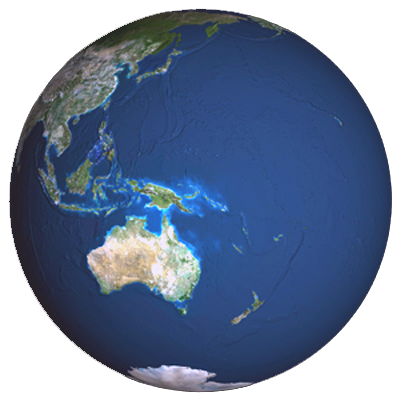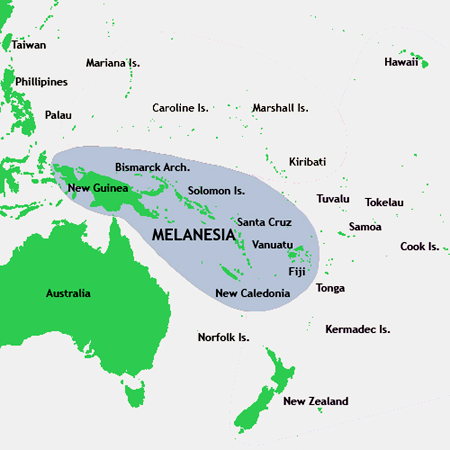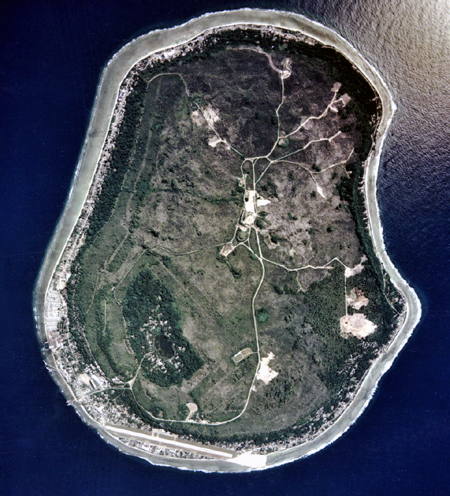- Geografi ; klima
; demografi ;
historie ; krige ; kultur ; kunst ; film
; musik ; politik ;
politiske partier ; forsvar ;
fredsbevægelser ; religion ; sociale forhold ; uddannelse ;
økonomi og våbenhandel.
- Geography; Nature and climate; Demography; History; Wars;
Culture ; Art; Film; Music; Politics; Political parties ; Defense;
Peace movements; Religion; Social conditions ; Education ,
Economics and Arms trade.
- Géographie; Nature et climat; Démographie;
Guerres; Histoire; Culture ; La musique; Politique; Partis
politiques ; La défense; Mouvements de paix; Religion;
Conditions sociales ; Éducation; Économie et commerce
des armes
-
- Natur,
klima. Biodiversitet. Fauna og
flora: Fisk. Fugle.
Koralrev.
Vådområder.
Nature, climate. Flora and fauna: Botanical gardens. Fish. Birds.
Coral reefs. Wetlands
Flore et faune: Poissons. Oiseaux. Les récifs coralliens.
Les zones humides.
Flora y fauna: Fish. Pájaros. Los arrecifes de coral. Los
humedales.
Natur, Klima. Flora und Fauna: Botanische Gärten. Fisch.
Vögeln. Korallenriffe. Feuchtgebiet, Feuchtbiotop.
- Ecosystem Profile Polynesia-Micronesia Biodiversity Hotspot. /
: James Atherton et al.
Conservation International-Melanesia Center for Biodiversity
Conservation, 2007.
-
http://www.cepf.net/Documents/final.polynesiamicronesia.ep.pdf
'The Polynesia-Micronesia Hotspot includes all the islands of
Micronesia, tropical Polynesia, and Fiji. Included in this enormous
expanse of ocean are more than 4,500 islands, representing 11
countries, eight territories and one U.S. state (Hawaii). Despite
its large marine coverage, 2.6 times larger than the continental
United States, it is one of the smallest hotspots in terms of
terrestrial land area, covering only 46,315 square kilometers or
about the size of Switzerland. The total population of the hotspot
is approximately 3,235,250 but 65 percent of the population is
found in Hawaii and Fiji. Not all countries and territories in the
hotspot are eligible for CEPF funds; only countries that are World
Bank members and signatories to the Convention on Biological
Diversity are eligible. Thus six countries and territories in the
hotspot, including Nauru; the U.S. state of Hawaii; the U.S.
territories of American Samoa and Guam; the Commonwealth of the
Northern Mariana Islands, and Tuvalu are ineligible. While this
ecosystem profile includes data and analysis from all 20 countries
and territories in the hotspot, conservation outcomes and strategic
directions only refer to the 14 eligible countries and
territories'.
'Plant, bird, and invertebrate diversity in the hotspot are
particularly high, but diversity of non-volant mammals, reptiles
and amphibians is low. Overall the hotspot is home to approximately
5,330 native vascular plant species, of which 3,074 (57 percent)
are endemic, 242 breeding native bird species of which
approximately 164 (68 percent) are endemic, 61 native terrestrial
reptiles, of which 30 (49 percent) are endemic, 15 native mammals,
all bats, 11 (73 percent) of which are endemic, and three native
amphibians, all endemic. Although there are no true native
freshwater fish, at least 96 marine species are found as adults in
freshwater and 20 species are endemic. Knowledge of invertebrate
diversity is very patchy, but for many groups that have been
studied, it is high. Land snail diversity is particularly high with
over 750 species in Hawaii alone and perhaps 4,000 species in the
insular tropical Pacific.'
- Skov, herunder: Brødfrugttræet / Artocarpus
mariannensis / dugdug. Ragone, D., and H.I. Manner. 2006.
Artocarpus mariannensis (dugdug), ver. 2.1. In: Elevitch, C.R.
(ed.). Species Profiles for Pacific Island Agroforestry. Permanent
Agriculture Resources (PAR), Holualoa, Hawai‘i.
- http://www.traditionaltree.org .
- Vådområder:
- International Network of Basin Organizations / Det
internationale netværk af flodbassin organisationer.
- http://www.inbo-news.org/spip.php?sommaire⟨=en:
-
Freshwater under Threat: Pacific Islands. / : United Nations
Environment Programme, Bangkok, 2012.

-
http://www.unep.org/pdf/Freshwater_Under_Threat-Pacific_Islands.pdf
- Geologi og
jordbundsforhold: Bjerge,
vulkaner, jordskælv og ørkenområder:
Geology: Mountains, volcanoes, earthquakes and desert areas
Géologie: Montagnes, volcans, tremblements de terre et les
zones désertiques
Geología: Montañas, volcanes, terremotos y zonas
desérticas
Geologie: Berge, Vulkane, Erdbeben und Wüstengebiete
- World Database on Protected
Areas: Beskyttede områder og
nationalparker.
- Afghansk natur ; Albansk natur ;
Algerisk natur ; Andorras natur
; Amerikansk natur ; Angolas natur ;
Antigua & Barbudas natur ;
Argentinsk natur ; Armensk natur
; Aserbajdsjans natur ; Australsk natur ; Bahamas natur ;
Bahrains natur ; Bangladesh
natur ; Barbados natur ; Belgisk natur ; Belizesk natur ;
Benins natur ; Bhutans natur ;
Boliviansk natur ; Bosnien-Hercegovinas natur ; Botswanas natur ; Brasiliens natur ; Brunei Darussalams natur ; Bulgarsk natur ;
Burkina Fasos natur ; Burundis
natur ; Canadisk natur ; Cambodjansk natur ; Camerouns natur ; Centralafrikansk natur ; Chilensk natur ;
Colombiansk natur ; Comorernes
natur ; Congolesisk natur ; Costa Ricas natur ; Cubansk natur ;
Cypriotisk natur ; Dansk natur ;
Djiboutisk natur ; Dominicansk natur ; Dominicas natur ; Ecuadoriansk natur ; Engelsk natur ;
Egyptisk natur ; El Salvadoransk
natur ; Elfenbenskystens natur ;
Eritreas natur ; Estlands natur ;
Etiopisk natur ; Fijis natur ;
Filippinsk natur ; Finsk natur ; De
forenede arabiske Emiraters natur ;
Fransk natur ; Færøsk
natur ; Gabons natur ; Gambiansk natur ; Georgiansk natur ; Ghanas natur ;
Grenadas natur ; Græsk
natur ; Grønlandsk natur
; Guatemalas natur ; Guineas natur ;
Guinea-Bissaus natur ; Guyansk
natur ; Haitiansk natur ; Hollansk natur ; Honduras natur ;
Hvideruslands natur ; Indisk
natur ; Indonesisk natur ; Irakisk natur ; Iransk natur ;
Islandsk natur ; Irsk natur ; Israelsk natur ; Italiensk natur ;
Jamaicas natur ; Japansk natur ;
Jordans natur ; Kap Verdisk natur ; Kasakhstanisk natur ; Kenyansk natur ;
Kinesisk natur ; Kirgisistans
natur ; Kiribatis natur ; Kosovos natur ; Kroatiens natur ; Kuwais natur ;
Laotisk natur ; Lesothisk natur
; Letlands natur ; Libanesisk natur ; Liberiansk natur ; Libysk natur ;
Liechtensteins natur ; Litauens
natur ; Luxembourgs natur ; Madagascars natur ; Makedonsk natur ; Malawis natur ;
Malaysias natur ; Maldiviensk
natur ; Malis natur ; Maltesisk natur ; Marokkansk natur ; Marshalløernes natur ; Mauretaniens natur ; Mauritius natur ; Mexicansk natur ; Mikronesisk natur ; Moldovisk natur ; Monacos natur ;
Mongoliets natur ; Montenegros
natur ; Mozambiques natur ; Myanmars natur ;
Namibias natur ; Nepals natur ; New Zealandsk natur ;
Nicaraguansk natur ; Nigers natur ; Nigerias natur ; Norsk
natur ; Nordkoreansk natur ; Omans natur ;
Pakistansk natur ; Palaus natur
; Palæstinas natur ; Panamas natur ;
Papua Ny Guineansk natur ; Paraguays
natur ; Peruviansk natur ; Polsk natur ; Portugisisk natur ; Qatars natur ;
Rumænsk natur ; Russisk
natur ; Rwandas natur ; Salomonøernes natur ; Samoas natur ;
San Marinos natur ; São
Tomé & Principles natur ; Saudi-Arabisk natur ; Schweizisk natur ; Senegals natur ;
Serbisk natur ; Seychellernes
natur ; Sierra Leones natur ; Singapores natur ; Skotsk natur ;
Slovakiets natur ; Sloveniens
natur ; Somalisk natur ; Spansk natur ; Sri Lankas natur ; St. Kitts & Nevis natur ; St. Lucias natur ; St. Vincent og Grenadinernes natur ; Sudanesisk natur ; Surinams natur ;
Svensk natur ; Swazilands natur
; Sydafrikansk natur ; Sydkoreansk natur ; Syrisk natur ;
Tadsjikistans natur ; Taiwanesisk
natur ; Tanzanias natur ; Tchads natur ; Thailandsk natur ; Tjekkisk natur ;
Togos natur ; Tongas natur ; Trinidad & Tobagos natur ; Tunesisk natur ;
Turkmenistans natur ; Tuvalus
natur ; Tyrksk natur ; Tysk natur ;
Ugandas natur ; Ukrainsk natur ;
Ungarnsk natur ; Uruguays natur ;
Usbekistans natur ; Vanuatus
natur ; Venezuelas natur ; Vietnamesisk natur ; Yemens natur ;
Zambias natur ; Zimbabwes natur ;
Ækvatorial Guineas natur ; Østrisk natur ; Østtimors natur.
Send
kommentar, email eller søg i
Fredsakademiet.dk






